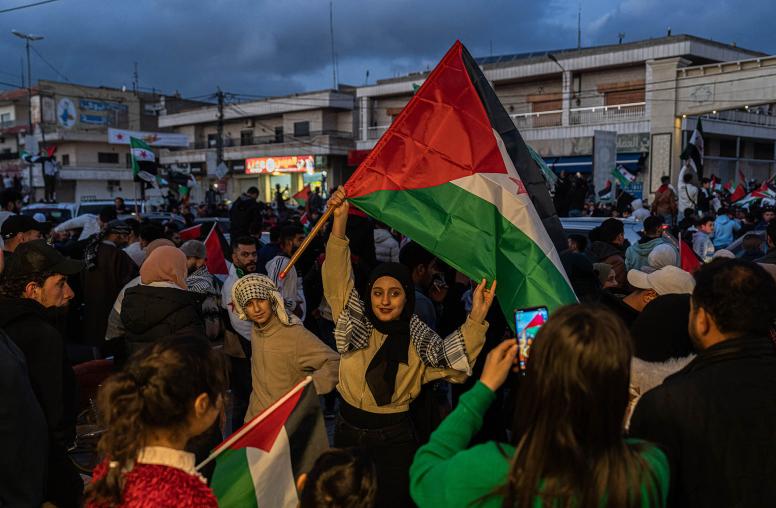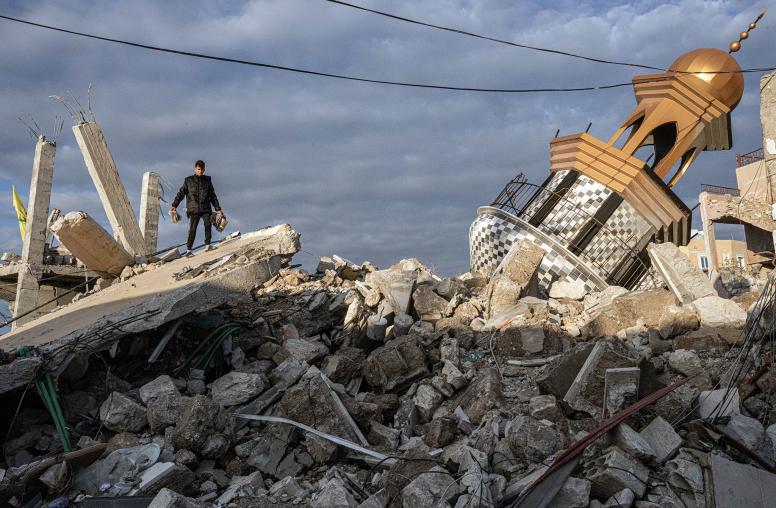Reconstructing Gaza – Lessons from Lebanon
As the international community continues to debate humanitarian assistance to Gaza, USIP examines “Reconstructing Gaza – Lessons from Lebanon” by Beirut-based Alistair Harris, a Deployable Civilian Expert for the British Government’s Stabilisation Unit. Harris argues that donors should avoid the temptation to adopt a mechanistic, one size fits all solution. “In the rush to rebuild what was destroyed, it should be remembered,” writes Harris, “that the major catalysts for this conflict were political and economic. As such, the reconstruction effort must ensure that viable employment initiatives form part of the post-conflict stabilization plan. This was very much a man-made humanitarian disaster,” concludes the report. “If the underlying issues are not addressed, unfortunately renewed conflict would seem inevitable.”

Background
Last week’s international donor conference to address the question of humanitarian assistance to Gaza underscores the myriad challenges confronting the process. Namely, how should the international community respond to the complex issues surrounding assistance in post-conflict recovery and reconstruction, particularly when several key donors reject any contact with Hamas, the governing authority on the ground? By any estimation, the Gaza reconstruction process will face several perplexing issues:
- How can billions of US dollars be effectively, transparently and accountably dispersed in a coordinated way, when several key donors and the Government of Israel reject any moves that will bolster the fortunes of Hamas, whom they classify as a terrorist organisation?
- What impact will an emerging Palestinian National Unity Government have on the mechanisms for overcoming many donors’ reluctance to deal directly with Hamas?
- What opportunities and challenges does the reconstruction of Gaza pose for a rapprochement between Hamas and Fatah?
- Who will lead the reconstruction process and how will meaningful activity take place in the face of severe restrictions on access and movement?
- With Hamas in power in Gaza and Israel refusing to consider opening their common borders until kidnapped Israeli Defence Forces Corporal Gilad Shalit is released by Hamas, how is meaningful recovery and reconstruction even possible?
- In the absence of a credible political process, what use is reconstruction anyway if it merely returns the population of Gaza to their pre-conflict socio-economic imperilment?
Lebanon faced a similar situation following the 2006 war between Hezbollah and Israel.
In an effort to provide insights into the challenges posed by Gaza reconstruction, this USIPeace Brief focuses on reconstruction efforts in neighboring Lebanon to draw out a number of post-conflict reconstruction lessons. While context specificity is central to any conflict analysis1, and while the conflicts differed vastly, they also pose common challenges to those responsible for post-conflict recovery and reconstruction. The comparisons underscore the fundamental truth that reconstruction is, at its core, a political rather than purely technical process, and ownership of it will be contested.
Notes
![]() 1. Download more on conflict analysis (PDF - 804 KB)
1. Download more on conflict analysis (PDF - 804 KB)
About the Author
This USIPeace Briefing was written by Alistair Harris, a Deployable Civilian Expert for the UK Government’s Stabilisation Unit (formerly Post-Conflict Reconstruction Unit) and a consultant to the Government of Lebanon’s Lebanese-Palestinian Dialogue Committee. The views expressed here are not necessarily those of USIP, which does not advocate specific policies.
The United States Institute of Peace is an independent, nonpartisan institution established and funded by Congress. Its goals are to help prevent and resolve violent international conflicts, promote post-conflict stability and development, and increase conflict management capacity, tools, and intellectual capital worldwide. The Institute does this by empowering others with knowledge, skills, and resources, as well as by directly engaging in peacebuilding efforts around the globe.



